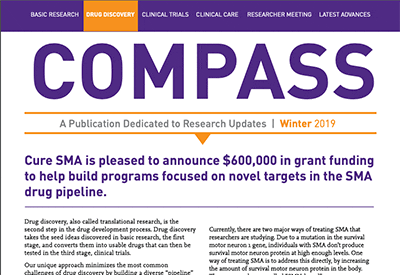Cytokinetics is currently conducting a Phase 2 clinical trial of CK-2127107 – now referred to by the generic name, reldesemtiv – which is designed to assess the investigational agent’s effect on multiple measures of muscle function in both ambulatory and non-ambulatory patients with SMA. The trial includes two cohorts of varying doses of reldesemtiv.
Enrollment has been open for approximately a year and has taken longer than expected due to the FDA approval of nusinersen and a high screen failure rate. The screen failure rate has been an ongoing challenge due in most part to patients being either too functional or not functional enough based on the Hammersmith scale. However, with 75% of patients in Cohort 2 now enrolled, Cytokinetics conducted a blinded analysis of variability for the change from baseline of several of the efficacy measures. Based on this analysis, the trial already appears to have sufficient statistical power to detect differences versus placebo in the efficacy endpoints and enrollment will conclude early to proceed to final data analysis.
Cytokinetics believes moving forward expeditiously to understand if there is a potential effect of reldesemtiv on the function of patients with SMA is critical given the evolving therapeutic landscape in SMA. Data from this clinical trial are expected to be shared with the SMA community during the second quarter of the year.
For More Information
Cytokinetics Publishes Clinical Trial Data for CK-2127107
Cytokinetics Receives FDA Orphan Drug Designation for CK-2127107 for SMA
Cure SMA Funding for Combination Therapies
The clinical trials for CK-2127107 materialized because of early seed funding from Cure SMA supporting research focused on the potential application of these specific skeletal muscle activators. In 2014, Cytokinetics released encouraging data from preclinical studies conducted with our funding. The data showed this approach had positive effects in preserving muscle strength and reducing muscle fatigue, setting the groundwork for the ongoing clinical trials.
The progress of this program also highlights the importance of developing combination therapies to treat SMA. The goal is that CK-2127107 will show positive results in preserving muscle strength in human clinical trials, and may lend itself to combination with other SMA therapies, particularly those that address the SMN protein deficiency caused by the SMN1 mutation. The development of combination therapies is particularly important as we seek to treat all types, ages and stages of SMA.



